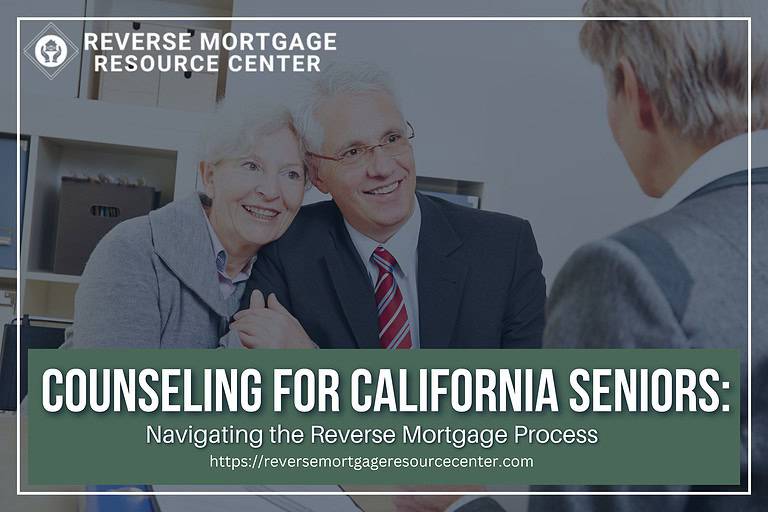Counseling for Idaho Seniors: Navigating the Reverse Mortgage Process
Financial worries can get more complex as we age, especially for seniors who want to retain their quality of life and independence in retirement. The reverse mortgage is one financial option that has gained appeal among Idaho elders. This novel financial instrument enables homeowners aged 62 and up to convert a portion of their home equity into tax-free funds. However, without adequate help and counseling, navigating the reverse mortgage process can be a challenging task. In this article, we will look into reverse mortgages, examine their benefits and drawbacks, and underline the critical role that counseling plays in ensuring Idaho elders make informed financial decisions.
Understanding Reverse Mortgages
What is a Reverse Mortgage?
A reverse mortgage is a financial instrument that allows senior homeowners to access the equity in their homes that has accumulated over time. A reverse mortgage, as opposed to a standard mortgage in which homeowners make monthly payments to the lender, allows homeowners to receive payments from the lender. These payments might be received as a flat sum, a line of credit, or monthly installments, giving seniors financial flexibility.
Types of Reverse Mortgages
Home Equity Conversion Mortgage (HECM): The most common type of reverse mortgage is the HECM, which is insured by the Federal Housing Administration (FHA). Government laws oversee it to safeguard borrowers and promote fair lending practices.
Proprietary Reverse Mortgage: These are private loans provided by private lenders, usually for higher-valued residences. They are not subject to the same government rules as HECMs and may provide larger loan amounts.
Single-Purpose Reverse Mortgages: These are provided by state or municipal government agencies and nonprofit organizations. Typically, they are used for a specified purpose, such as house repairs or property taxes.
The Benefits of a Reverse Mortgage
Supplementing Retirement Income
The opportunity to supplement retirement income is one of the key advantages of a reverse mortgage. Idaho seniors struggling to make ends meet or who want to maintain their lifestyle without relying on their children or other family members can benefit from reverse mortgage funding. This additional money might cover daily expenses, medical bills, or recreational activities.
Staying in Your Home
Many seniors have strong sentimental attachments to their homes and want to live in place. They can stay in their homes while accessing the equity they’ve built up with a reverse mortgage. As elders continue to live alone, this can provide comfort and security.
No Monthly Mortgage Payments
One of the most tempting advantages of a reverse mortgage is that no monthly mortgage payments are required. The loan balance is payable when the homeowner moves out or passes away. At this point, the house is often sold to pay off the loan. This can relieve financial stress and provide elders with peace of mind.
The Pitfalls and Potential Risks
Equity Erosion
While a reverse mortgage allows seniors to access their home equity, it’s critical to remember that the loan balance grows over time as interest accumulates. This can potentially decrease home equity, leaving less to pass on to heirs.
Impact on Heirs
A reverse mortgage may complicate issues if the family house is to be left as an inheritance. When the homeowner passes away, the loan must be repaid, which is often done by selling the residence. It is critical to openly address the implications of a reverse mortgage with family members.
Costs and Fees
Fees and expenditures associated with reverse mortgages include upfront costs, servicing fees, and mortgage insurance payments for HECMs. Seniors must be aware of these costs and consider them when making decisions.
The Importance of Counseling
Mandatory Counseling
Before a senior can get a reverse mortgage, they must go through counseling with a HUD-approved counselor. This counseling must ensure elders understand reverse mortgage terms and potential risks. The counselor will assist seniors in evaluating their financial condition and determining whether a reverse mortgage is the best option.
Financial Assessment
Counseling includes a comprehensive financial assessment to ensure elders can fulfill their financial commitments, such as property taxes and insurance while maintaining their house. The counselor will review alternatives with seniors and assist them in understanding their options.
Objective Expertise
A HUD-approved counselor offers unbiased advice. They have no financial vested interest in whether a senior proceeds with a reverse mortgage. This objectivity guarantees that seniors receive excellent counsel without pressure to make a specific decision.
Understanding the Consequences
Counselors assist seniors in understanding the potential repercussions of a reverse mortgage, including equity erosion, heir effect, and costs. Transparency is essential for making informed judgments.
The Process of Obtaining a Reverse Mortgage
Eligibility Criteria
To be eligible for a reverse mortgage, seniors must be at least 62 years old, own a property that is their principal residence, and have adequate equity in the home.
Application Process
The application process typically involves:
Counseling: Seniors are required to attend mandatory counseling sessions with a HUD-approved counselor.
Loan Application: Following counseling, seniors can apply for a loan with a lender of their choice.
Appraisal: The lender arranges a house appraisal to establish the property’s value.
Underwriting: The lender evaluates the application and appraisal to establish the loan amount.
Closing: If the loan is granted, it is closed, and payments can be disbursed to the senior.
Disbursement Options
Seniors can pick how they want to receive their reverse mortgage funds:
Lump Sum: A one-time, upfront payment.
Line of Credit: Funds are available as needed, much like a credit card.
Monthly Payments: Regular monthly payments over time.
Alternatives to Reverse Mortgages
Reverse mortgages are not the only option for seniors seeking home equity. Some alternatives include:
Home Equity Line of Credit (HELOC): A HELOC allows seniors to borrow against their home equity while only paying interest on the amount borrowed. Although monthly repayment is necessary for any outstanding loan balance, it provides greater flexibility than a standard mortgage.
Downsizing: Selling your current house and relocating to a smaller, more inexpensive home can free up equity while removing the need for monthly mortgage payments.
Government Assistance Programs: Seniors with limited income and resources may qualify for government assistance programs to help with living expenses.
REVERSE MORTGAGE RESOURCE CENTER ~LIVE LIFE ON YOUR TERMS~
Our Lending Team has been serving our clients since 2004. We are passionate about serving our clients with integrity to help them achieve their financial goals.







